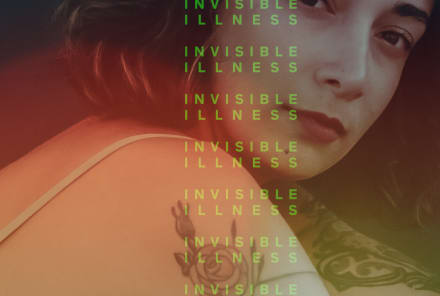Advertisement
What Is Emotional Cheating? How To Recognize This Painful Type Of Infidelity

We tend to think of cheating as sexual, whether it's a one-night stand, virtual sex, or an ongoing affair.
But in committed love relationships, "cheating" isn't always about a sexual encounter, secret flirtation, or online erotic event. Fundamentally, it's about breaching trust.
What is emotional cheating?
"Emotional cheating" is a particular type of secretive, sustained closeness with someone who isn't your primary partner.
It's one person making a unilateral decision to cultivate nonsexual intimacy with someone other than their primary romantic partner in a way that weakens or undermines the relationship.
Many see this type of connection as having an erotic component to it. Though there often can be an underlying romantic or erotic energy in emotional cheating, it can also occur without the element of romance or eroticism present.
I've worked with couples who feel "emotionally cheated on" by partners who share too much with friends, work colleagues, or even family members—people with whom there's no romantic frisson whatsoever.
Nonetheless, they've experienced it as "emotional cheating" because their partners have engaged in an inappropriately deep, sustained closeness with someone else in a way that excluded them. I've even talked to people who feel their partner is emotionally cheating on them with a therapist!
Because this type of cheating can look "healthy" from the outside, it can be hard to name and confront: non-erotic emotional cheating—a powerful spiritual friendship with a pastor or teacher, an idealized mentor with whom you have an ongoing passionate email exchange about poetry or art, flattering DMs from a well-known business coach on Instagram that have been getting increasingly personal.
The advent of the internet and the abundance of ways to connect with people all over the world has opened up the number of channels available for different forms of cheating to take place outside of a primary relationship.
Many who cultivate this type of closeness defend it with phrases like, "They're just a close friend," or "But you said I should turn to other people for support," or "They listen to me when you're too busy." For this reason, emotional cheating can go undetected while silently siphoning energy away from a relationship and leaving you and your partner disconnected.
How to know if someone is emotionally cheating
One way to "diagnose" whether you or your partner are engaging in emotional cheating is to look at the impact.
Does the outside connection strengthen or weaken your bond with your partner? Does the intimacy you have with someone else—a co-worker, Facebook friend, trainer at the gym, or yoga teacher—support your closeness with your partner or erode it?
Another way of assessing whether emotional cheating may be taking place—particularly if you're the one doing it—is to tune in to how you feel.
Does this outside person temporarily relieve a sense of loneliness but leave you feeling lonelier in the long run? Is your closeness with them something you crave—like a sugar fix—that comes with a lingering sense of guilt when you get home to your significant other?
Examples and signs of emotional cheating
Here are some common (and not-so-common) signs of emotional cheating:
- Your partner tells the outside person things that they don't even tell you.
- They're more irritable toward you after connecting with the outside person.
- They have a hard time tolerating brief periods of frustration, loneliness, or emotional discomfort within your relationship.
- They often/always turn to the outside person for comfort when you're unavailable.
- They seem to connect with the outside person more often after unresolved conflicts with you.
- They've been increasing the frequency of connection with the outside person.
- They drop hints that they wish you were more like the outside person.
- There are gift exchanges between them and the outside person.
- They try to prevent you from seeing texts or emails on their phone, laptop, etc.
- They compare your emotional capacity to the outside person's emotional capacity.
- They seem more detached from you after connecting with the outside person.
- They want a lot less sex.
- They want a lot more sex but seem detached during sex with you.
- They act differently when talking about the outside person.
- They've stopped expressing their needs.
- They've stopped communicating with you about deeper issues.
- The relationship with this outside person acts as an "exit" from connection with you.
- They seem to have given up on facing and resolving issues with you.
- They use inappropriate terms of endearment with the outside person, such as "love you," "miss you," "baby," "sweetheart," "honey," etc.
- They minimize, deny, or mock your complaints about the outside person.
- They get reactive, judge you, or emotionally distance from you when you request they create stronger boundaries with the outside person.
- They tell you you're too sensitive about their relationship with the outside person.
No single item on this list means your partner is emotionally cheating. But if you're noticing that multiple items on this list are at play, it could be a sign that there's a degree of emotional cheating occurring.
It could also mean that you've stopped prioritizing the intimacy between you and your partner, and it's time to recommit to one another—to lean into your feelings and vulnerabilities, despite fears or obstacles.
Caveat: You shouldn't use accusations of "emotional cheating" as a way of justifying coercive, controlling, or manipulative behavior toward your partner.
If you or your partner have any major concerns about the dynamic between you—or if your behaviors are consistently hurtful and/or damaging to one another—you may want to seek professional counseling.
Emotional cheating versus friendship
What’s the difference between friendship and emotional cheating? The short answer is that with friendships, there are different boundaries than in a primary attachment.
When a romantic partner becomes a priority in your life, it's important for friendships to flex and give, even as they remain present and supportive. This allows more space for your relationship to develop as your main source of closeness and support.
Opening up to depending on a romantic partner fosters bonding, trust, love, and intimacy.
How do you know whether an outside connection is a friendship or "emotional cheating"? Here are methods you can use to help you figure it out:
- Ask yourself: Am I oversharing with this outside person? Disclosing too much? Stoking an outside heart-connection at the expense of my partnership? Check in with yourself by tuning in to your body. Notice any subtle signals—queasiness, tension, tightness in your chest or throat. Chances are, your own embodied intuition "knows" the answer and will tell you, if you create the space to listen.
- Imagine that your partner is seeing the interactions between you and this friend, hearing the conversations, and maybe even picking up on your feelings of relief, excitement, or pride. Consider how your partner would feel. Would it make them uncomfortable? Would they feel hurt or betrayed? How would you feel if the tables were turned, and your partner had this closeness with someone else?
Why emotional cheating happens
If your partner is emotionally cheating, you might be wondering: Why are they doing this? Is it because they're secretly in love with this outside person? Have they stopped loving me? Is it because there's something wrong? Is our relationship over?
Sometimes, the unilateral decision by one partner to "emotionally cheat" is consciously and strategically made, but more often than not it's about small, cumulative, perhaps well-intentioned, and unconscious boundary slippages—something that a partner thoughtlessly indulges in when they regularly share thoughts, hopes, dreams, feelings, frustrations, passions, or other aspects of their inner world with someone else, unbeknownst to their partner.
More often than not, emotional cheating is a way that one partner is trying to get a deeper need met—or to protect themselves from a feared scenario.
Why aren't they trying to get this need met with you? How come they don't just share their inner world, their fears, and vulnerabilities with you directly rather than cultivating a close bond elsewhere? These are big questions with complex answers that vary.
Maybe they've tried to get close to you, but you've been dismissive, judgmental, or unavailable. Maybe they themselves are afraid of driving you away with their "neediness." Maybe depending on you scares them. Maybe they're mad at you. Or maybe they don't see emotional cheating the same way you do. Maybe they need lots of connection with a wide variety of people, whereas you don't.
There could be a lot of reasons, and these reasons could overlap and shift with time.
Strong attachments activate a web of old wounds and longings mingled with present-day desires and fears that influence how we try to defend against painful or overwhelming emotions within us, and/or against potentially uncomfortable experiences with an intimate partner.
Emotional cheating is often one way we or our partners try to stay in control.
FAQs:
Is texting someone else cheating?
No particular way of communicating is inherently a form of cheating, whether texting, talking, writing, emailing, or skywriting. Any kind of cheating—emotional or sexual—involves deception and/or secrecy. It's a breach of trust, a break in an implicit or explicit relationship agreement.
Is flirting considered cheating?
Flirting per se isn't cheating. Of course, like any behavior you engage in, it's important to look at it contextually. Why do you (or why does your partner) flirt? Does it support and enliven you both? Is it a positive force in your life and relationship? Or is it weaponized? Does it subtract something from you or your partner and distance you from one another? Sustained flirting with ulterior motives, fueled by unacknowledged fears and needs, may not be cheating—but it can be a sign of trouble. At the same time, "clean" flirting—where you feel and express your own vitality and/or acknowledge someone else's in a sensitive way and with awareness—can be a sovereign act of life-affirming playfulness. Look at the context, consider the impact, and talk about it with your partner.
If there's no physical contact, why does it matter?
What we allow ourselves to share with a person, and what they share with us, can seep into our hearts and our fantasy life. In fact, it can sometimes feel easier to experience closeness with someone we don't touch, don't spend time with, and don't interact with in an ordinary, mundane way. For this reason, we need to be wary of the seductive appeal of connections that aren't "real"—that take place at a distance, with someone we don't truly know, in an ethereal internet ivory tower, far from the down-and-dirty, nitty-gritty reality of everyday loving.
Does this mean I can't have close emotional connections with others?
Of course not. Close connections with others are essential to self-care, which is at the foundation of healthy relationships, whether you're single or partnered. There's no way one individual—whether a soul mate, lover, boyfriend, girlfriend, partner, or spouse—can meet our vast and varied needs. Ideally, however, your relationships with outside people are there to empower you to show up more honestly and authentically in your primary relationship, to help it thrive—not to contribute to its decline.
How to talk about emotional cheating with your partner
Here's how you can talk to your partner about emotional cheating:
- Show them this article, and ask them what they agree or disagree with. Why? Share your ideas and perspectives with them.
- Ask your partner to share whether they've ever felt "emotionally cheated on" by anyone, including you, and listen to what they say with an open heart.
- Ask if they're available to hear about any times you've felt "emotionally cheated on" by other people in your life, including them.
- Make a list of topics, behaviors, or types of connections with outside others that feel inappropriate or "out of bounds" for you. Discuss your lists with a view to understand rather than convince or control.
- Work together to create explicit understandings about boundaries, trust, and safety, when it comes to closeness with outside others.
- Read good books on related subjects, such as Love Skills by Linda Carroll, Loving Bravely by Alexandra Solomon, The New Monogamy by Tammy Nelson, and The Codependency Recovery Plan by Krystal Mazzola.
And if you have emotionally cheated before in your relationship, here's what to do after cheating and how to stop cheating for good.
Watch Next
Enjoy some of our favorite clips from classes
Enjoy some of our favorite clips from classes
What Is Meditation?
Mindfulness/Spirituality | Light Watkins
Box Breathing
Mindfulness/Spirituality | Gwen Dittmar
What Breathwork Can Address
Mindfulness/Spirituality | Gwen Dittmar
The 8 Limbs of Yoga - What is Asana?
Yoga | Caley Alyssa
Two Standing Postures to Open Up Tight Hips
Yoga | Caley Alyssa
How Plants Can Optimize Athletic Performance
Nutrition | Rich Roll
What to Eat Before a Workout
Nutrition | Rich Roll
How Ayurveda Helps Us Navigate Modern Life
Nutrition | Sahara Rose
Messages About Love & Relationships
Love & Relationships | Esther Perel
Love Languages
Love & Relationships | Esther Perel











